Objective
Promote reflection in patient care, learning and teaching.
Reflection means:
- Being thoughtful and reflective on what, how and why you do what you do.
- Being mindful of the events around you and within you.
- Being present in the moment during your practice, particularly during interactions with patients.
- Being able to express your thoughts, feelings and experiences.
Mindfulness in Practice
Mindful practitioners attend in a nonjudgmental way to their own physical and mental processes during ordinary, everyday tasks, including:
- Patient care
- Teaching
- Learning
- Working as part of a team
This critical self-reflection enables physicians to:
- Listen attentively to patients’ distress,
- Recognize their own weaknesses
- Refine their technical skills
- Make evidence-based decisions
- Clarify their own values
These habits enhance the physician’s ability to can act with compassion, technical competence, presence, and insight.
Mindfulness informs all types of professionally relevant knowledge, including personal experience, processes and know-how, each of which may be tacit or explicit.
Mindful practitioners use a variety of means to:
- Engage in moment-to-moment self-monitoring
- Bring to consciousness their tacit personal knowledge
- Be aware of their deeply held values
- Adopt new information and perspectives
- Cultivate curiosity in both ordinary and novel situations.
Mindfulness is a link between relationship-centered care and evidence-based medicine and should be considered a characteristic of good clinical practice.
(Adapted from Epstein 1999.)
Tips for Students – Promoting reflection in the clerkship experience
- Learners often find it difficult to maintain mindfulness when they are focused on facts, responsibilities, evaluation and mastering the details of medicine.
- Set aside some patient encounters – or parts of encounters – to relax and devote attention to being present in the moment.
- Practicing your patient-centered communication skills is an ideal focus for practicing mindfulness.
- Develop your confidence and skill in asking questions to engage your preceptors in discussion and reflection on challenging topics.
- Encourage your preceptor to talk about his or her feelings regarding patients and practice. What gives the family doctor the greatest professional satisfaction? What will give you satisfaction in your career?
- Reflect on your process of asking questions and seeking answers. What clinical situations provide the richest learning experiences? What approach to asking questions works best for you and your clerkship teachers?
- If you plan to pursue a career in family medicine, ask: What are you learning about yourself that will help you prepare?
- If you plan to pursue a career in another area of medicine, ask: What are you learning about community-based generalist practice that will help you become a better specialist?
Student Exercises – Reflection
1. Note on your Question Card at least one example of each observation:
- You noticed in yourself an emotional reaction to the patient.
- You felt uncomfortable with a choice made by a patient.
- The relationship with the patient seemed to be an important part of the care.
- You observed something in your preceptor that you want to emulate.
- You observed something in your preceptor that you want to avoid.
2. Recall a recent patient with whom you worked through a clinical decision balancing risks and benefits. Did the patient make the same choice you would have made? How much might your own values have influenced the process and the patient’s decision? How did you manage the process in real time?
3. At the end of each of the next three days, reflect on your clerkship experience and note how it might have changed you, for example, in areas such as:
- Personal growth
- Professioal growth
- Clinical wisdom
- Career plans
